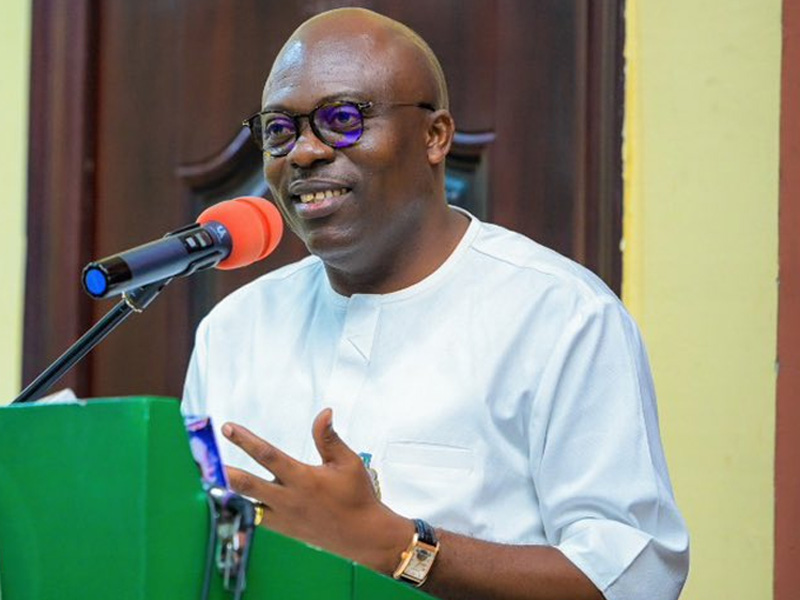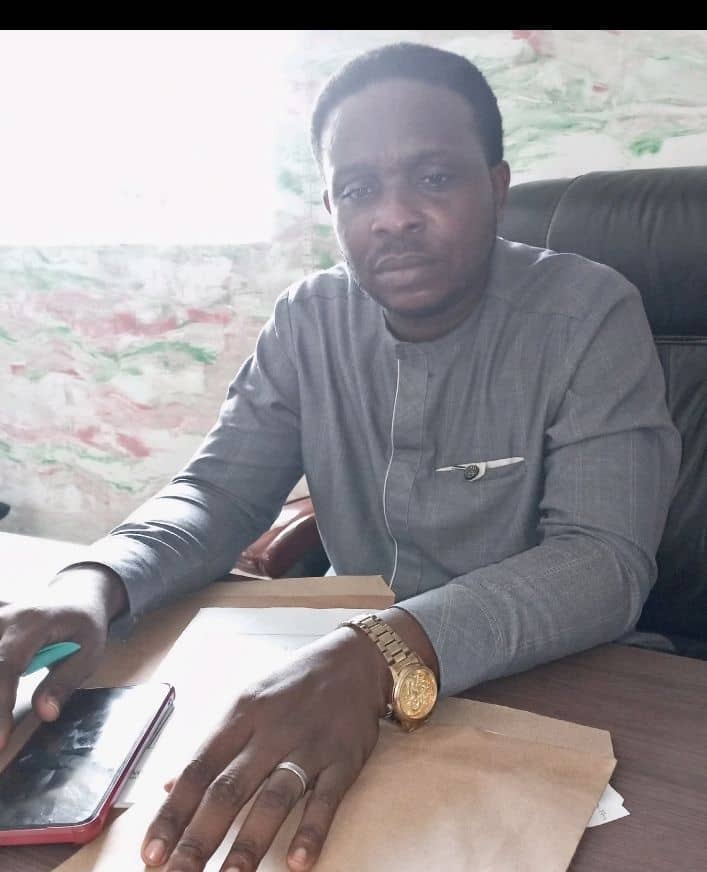RIVERS STATE GOVERNOR SIMINALAYI FUBARA
ABUJA, Nigeria — In a resolute statement released on Friday, 28th February 2025, the Independent National Electoral Commission (INEC) vehemently refuted allegations made by Rivers State Governor Siminalayi Fubara that the electoral body had selectively implemented elections to fill vacancies arising from the defection of serving legislators.
The statement, issued by Rotimi Oyekanmi, Chief Press Secretary to the INEC Chairman, not only dismissed these charges as misplaced but also underscored the Commission’s unwavering commitment to the rule of law and due process.
A Crisis of Constitutional Proportions
At the heart of the controversy lies the protracted crisis in the Rivers State House of Assembly, where internal discord has seen two factions locked in a bitter struggle for control.
Amid this turmoil, it is reported that a contingent of lawmakers has, in a bid to reshape the political landscape, declared the seats of 27 members vacant. Governor Fubara’s accusations centre on the claim that INEC has deliberately failed to fill these vacancies—a move he alleges is indicative of selective enforcement of the constitutional mandate that mandates the loss of a legislative seat upon defection.
Yet, as Oyekanmi’s statement emphatically clarifies, no specific instances or concrete evidence of such selective action have been adduced. Instead, the Commission draws attention to the matter’s pending status in court, noting that it is embroiled in several legal challenges, including suits filed before the Supreme Court.
INEC’s position is unequivocal: it will await the final judicial pronouncement before embarking on any exercise that might ultimately prove to be null and void or, worse still, a waste of public funds.
Legal Restraint and Institutional Neutrality
INEC’s measured response is a testament to the institutional restraint that is required in a democratic society. In the statement, the Commission warns public office holders to exercise circumspection in their public pronouncements, particularly when litigation is ongoing.
The admonition is clear: premature or reckless statements not only mislead the public but also cast aspersions on the integrity of public institutions at a time when national trust in the electoral process is already under strain.
The crux of the matter is the enforcement of Section 109 of the 1999 Constitution (as amended), which clearly stipulates that lawmakers who defect from the party on whose platform they were elected should lose their seats.
While this constitutional provision has been a cornerstone of Nigeria’s democratic framework, its application has historically been fraught with inconsistencies. Critics have long argued that the selective enforcement of this rule undermines the rule of law and fuels partisan politics.
However, INEC’s stance, as articulated by Oyekanmi, is that any such action must be determined by the judiciary rather than by an administrative body acting unilaterally.
Political Motivations and the Battle for Narrative Control
The political undercurrents in Rivers State cannot be ignored. Governor Fubara’s allegations come at a time when the state’s political fabric is visibly frayed.
In recent months, conflicting factions within the Rivers State House of Assembly have engaged in a power struggle that has not only destabilised the legislative process but also amplified partisan tensions.
In this highly charged environment, accusations against INEC appear to be as much about political manoeuvring as they are about governance.
Political analysts have suggested that Fubara’s public statements might be an attempt to rally his supporters by framing the crisis as a battle against an allegedly biased electoral body.
By casting INEC as a partisan entity that selectively enforces constitutional provisions, the governor aims to delegitimise any future actions by the Commission that might not align with his political interests.
Yet, in a display of institutional maturity, INEC has categorically rejected such characterisations. Instead of yielding to the pressure of populist rhetoric, the Commission has chosen the path of legal caution, thereby upholding the principle that administrative decisions must be anchored in judicial validation.
The Judicial Impasse and the Future of Electoral Administration
The INEC statement is particularly notable for its reference to the multiplicity of suits that have been joined against it in various courts. This legal quagmire is emblematic of the broader challenges facing Nigeria’s electoral administration.
With several cases pending—ranging from disputes over the filling of legislative vacancies to challenges on the constitutionality of past decisions—the Commission finds itself in a precarious position.
Any unilateral action taken in the absence of a clear judicial directive risks not only nullity but also the squandering of public resources.
Indeed, the Commission’s decision to await a final judicial pronouncement is both pragmatic and principled. It recognises that the electoral process in Nigeria, particularly in a politically volatile state like Rivers, must be insulated from the vicissitudes of partisan battles.
By deferring action until the courts have had their say, INEC reinforces its commitment to impartiality and legal certainty—a stance that is essential for maintaining public confidence in Nigeria’s democratic institutions.
The Broader Implications for Nigerian Democracy
INEC’s response has broader ramifications beyond the immediate crisis in Rivers State. The controversy over political defections and the selective filling of vacancies is symptomatic of a deeper malaise in Nigerian politics, where party allegiance is frequently fluid and the rule of law is often subject to political interpretation.
In such a climate, the integrity of the electoral process is continuously called into question, and public trust in democratic institutions is eroded.
The Commission’s firm stance, therefore, should be seen as a reaffirmation of its role as the impartial arbiter of Nigeria’s electoral destiny.
In a system where political defections have become a routine feature of the legislative landscape, the need for consistent and transparent enforcement of constitutional provisions is paramount.
INEC’s decision to await judicial clarity before acting on the vacancies in the Rivers State House of Assembly is a measured response that underscores the importance of legal adjudication over ad hoc administrative measures.
Moreover, the Commission’s call for public office holders to refrain from making inflammatory statements is a reminder that the health of a democracy depends not only on the institutions but also on the behaviour of its leaders.
In an era where political rhetoric can often border on the incendiary, the responsible approach adopted by INEC is both commendable and necessary.
It sends a clear message that public institutions must be allowed to operate free from the undue influence of partisan politics and that any deviations from established legal norms will be subject to judicial review.
A Sensational Scene Unfolding in Rivers State
While the legal and institutional dimensions of the crisis are undoubtedly complex, the political theatre unfolding in Rivers State has not escaped public attention. In the charged atmosphere of Rivers politics, every statement, every legal challenge, and every public pronouncement is magnified.
Governor Fubara’s allegations, sensational as they may be, serve to deepen the divide between competing factions within the state’s political establishment. Yet, it is precisely this atmosphere of heightened tension that makes INEC’s measured response all the more significant.
By refusing to be drawn into a political battle of words, INEC has positioned itself as a stabilising force in a storm of partisan conflicts. The Commission’s insistence that any action on the vacancies be deferred until a final judicial ruling is rendered is a statement of principle that resonates far beyond Rivers State.
It is a call for judicial propriety and institutional integrity in a political system that is often marred by opportunism and short-term calculations.
Conclusion: Upholding the Rule of Law in Troubled Times
In conclusion, the INEC statement on 28th February 2025 is not merely a bureaucratic communiqué—it is a clarion call for restraint, legal certainty, and the preservation of democratic integrity in Nigeria.
While Governor Fubara’s allegations have ignited a firestorm of controversy, the Commission’s measured response serves as a reminder that the rule of law must prevail over partisan expediency.
The ongoing legal battles, pending before various courts including the Supreme Court, underscore the complexity of enforcing constitutional provisions in a politically volatile environment.
INEC’s decision to await a final judicial pronouncement before proceeding with any electoral exercise is both prudent and necessary. It protects the Commission from embarking on a “puerile exercise” that could ultimately prove null and void, while also safeguarding public funds.
In a nation where political defections have long been a contentious issue, INEC’s steadfast commitment to legal clarity and institutional neutrality offers a beacon of hope for a more stable and principled democratic process.
As Nigeria grapples with its political challenges, the need for responsible leadership and the unwavering application of the law has never been more apparent.
INEC’s response, though seemingly defensive, is in fact a powerful affirmation of its role as the custodian of Nigeria’s electoral integrity—a role that is essential if the country is to move beyond the perennial crises that have beleaguered its democratic journey.





